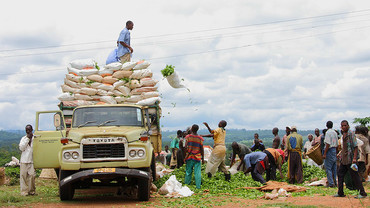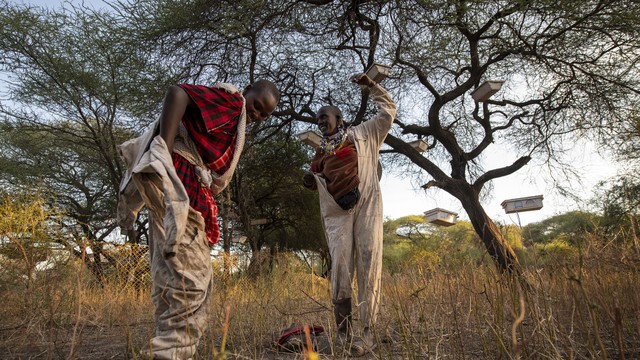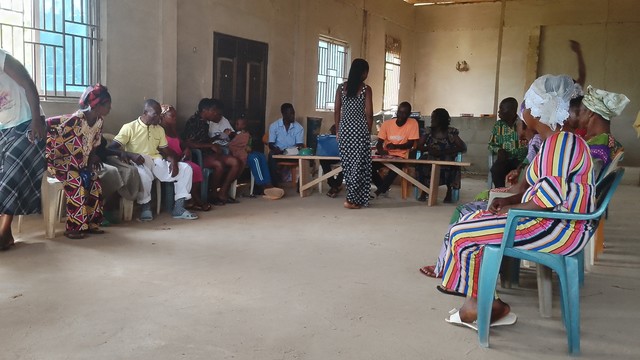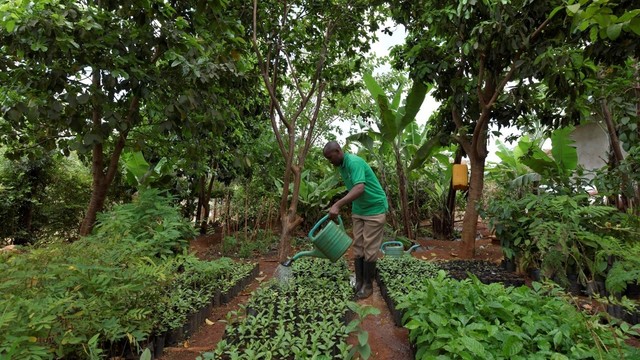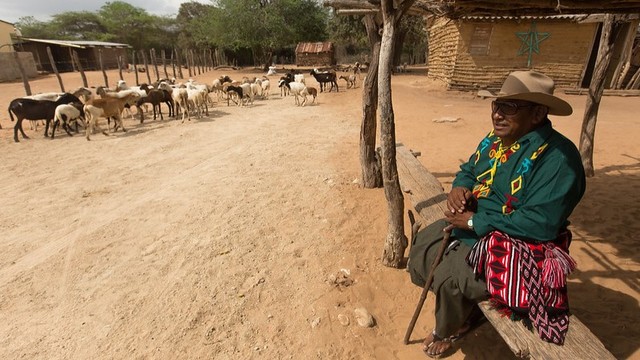Inclusive dialogue gets priorities of Nepal’s rural producers recognised in local law
Binod Gautam reflects on a participatory local-level law-making process, developed to tackle the barriers that marginalise rural smallholder producers in Nepal.


A smallholder farmer from Ranichuri village, Nepal (Photo: UN Women/Narendra Shrestha, via Flickr, CC BY-NC-ND 2.0)
Under its 2015 constitution, Nepal embarked on a major transition towards decentralisation. Article 226 gave village and municipal assemblies the mandate to make their own laws to address local level challenges.
Overall, implementing the decentralised model has been slow, with the federal government reluctant to allow local and provincial governments to exercise their law-making powers.
But from the rural municipality of Gadhawa in Southwestern Nepal comes a story of success.
Gadhawa is home to a high number of smallholder farmers. Many are landless, struggle for local market access and rarely get fair prices for their produce. Despite the law-making power of municipalities under the decentralised model, no local legal provisions existed to help smallholder farmers address these challenges, nor were there any spaces or platforms to raise their issues around the barriers to commercial farming.
An inclusive space for open dialogue
Under the Empowering Rural Producers in Commercial Agriculture (EPIC) project, land rights organisation the Community Self Reliance Centre (CSRC) and the agricultural cooperative Nepal Agriculture Cooperative Central Federation Limited (NACCFL) established Land and Agriculture Learning Centres (LALCs).
The LALCs provided a space for smallholder farmers to discuss their priorities, their most pressing challenges to engaging in commercial farming, and to collectively find solutions for how their needs should be reflected in local policy.
A highly participatory and inclusive approach – based on the REFLECT methodology – ensured the most marginalised smallholder farmers joined the dialogues, including women farmers and famers from Dalit and Indigenous communities.
The REFLECT approach aims to involve everyone, including the least literate in discussion, analysis and decision-making. It provides a democratic space where a community meets and discusses relevant issues; participants choose the topics themselves and are supported by a local facilitator.
Over a three-year period, 15 LALCs were formed, bringing together 266 women and 150 male smallholder farmers, from diverse groups and communities, in regular dialogue.
It was clear that strong, responsive local level policy was needed to address the breadth of issues; it was also clear that effective policy shifts would not be achieved by tackling different challenges individually: local policies needed a framework that would support the agency of smallholder farmers more broadly.
Linking up with local government
Gadhawa municipality had the mandate to legislate local laws around land, agriculture and markets that would support smallholder farmers. Yet engagement with local government was low.
With support from the EPIC team, work began to build connections and facilitate discussions between local government and smallholder farmers.
In consultation with local government, smallholder farmer representatives put forward issues explored in the LALC dialogue. These included recommendations for tackling key challenges including leasing land for collective access, accessing existing government resources or joining agricultural cooperatives to help boost local market access.
Local government officials began to acknowledge the challenges facing Gadhawa’s smallholder farmers; the sheer volume of farmers who took part in the dialogues, the number of issues arising and the compelling recommendations put forward were impossible to ignore.
Addressing farmers’ issues in local law
In June 2021, the rural municipality ratified the Local Agriculture Promotion and Farmers Empowerment Act of Gadhawa.
The law covers issues critical to small-scale farmers in relation to land, agriculture and agri-food markets. It includes provisions to support land access; protect agricultural land; promote of crop insurance, local market access, transportation services for getting produce to market, cold storage facilities to keep produce fresh; and collection centres to boost smallholders’ capacity to access, and negotiate in, a range of markets.
It also includes provision for minimum support pricing, data on crop production and surpluses and the promotion of climate-resilient agriculture.
The law also responds to the needs of particularly marginalised smallholder farmers. Women farmers, for example, are supported through tax relief or specific provisions for women’s cooperatives. The curbing of bonded labour practices and provisions to boost land and tenures security supports Dalit farmers and Indigenous farmers.
Inclusive, democratic governance
Under the law, committees were established to oversee governance relating to local agriculture production and marketing.
To ensure smallholder farmers, including marginalised farmers, were at the heart of decision-making relating to agricultural development, the Agriculture Market Operation and Management Committee and the Local Agriculture Business Promotion Committee include representation of women farmers, women entrepreneurs, and from land rights forums, small-scale farmer groups, small-farmer agricultural cooperatives, local government and relevant business associations.
Bottom-up, participatory law making
The adoption of the Local Agriculture Promotion and Farmers Empowerment Act was very significant. It was the first time since the 2015 Constitution and 2017 Local Government Operations Act came into force, that a local government had exerted its powers to develop legislation for implementation within their newly semi-autonomous jurisdictions.
And it was the consultative process leading to formulation of the law that was the most prominent aspect − demonstrating how local level laws can be generated from the bottom-up and be oriented to the needs and priorities of smallholder farmers, including the most marginalised.
The provisions for smallholder farmers in the law came via the participatory policy dialogues. Such participatory processes give citizens a greater chance not only to frame the rules and priorities of agricultural production and marketing, but to be in a more informed position to hold local government to account on implementation.
The inclusive committees provide critical representation of small-scale and marginalised farmers in shaping the agri-food sector in their areas – in particular on equitable land ownership, market access and inclusive business promotion.
The effectiveness of the law rests on implementation − but the current government has expressed commitment to implementing all the provisions.
Replicating the model, scaling up impact
This consultative process leading to formation of the law not only helped unpack issues raised by small-scale farmers, but also raised them directly with local government. Presenting solutions as well as challenges increases the responsiveness of local government.
The process empowered rural producers and highlighted a bottom-up approach for local government to formulate laws and policies. Both aspects are needed for advancing policy formulation processes under the new decentralised model.
There is real potential to replicate this process of local-level law-making in other municipalities, and to transfer it to other sectors. The EPIC team is sharing lessons with other municipalities and networks to advance decentralised law-making and the agency of Nepal’s smallholder farmers, so far with the Municipal Association of Nepal and the National Rural Municipality Association of Nepal.
